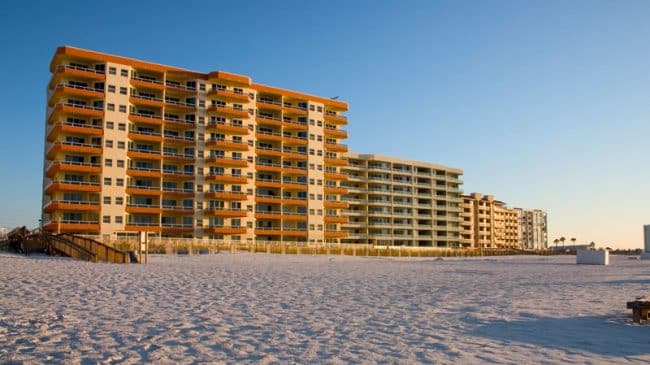Alabama’s white-sand beaches at Gulf Shore and Orange Beach are becoming increasingly popular tourist destinations. Travelers driving to the beaches can choose between SR 59, a major roadway with more than 25 stoplights between I-10 and the shore, and the Foley Beach Express, a toll road and bridge from I-10 to Orange Beach.
The toll road provides drivers who are willing to pay the fees with a quick, reliable travel time and helps to reduce the number of cars on SR 59.
But not everybody is happy with these travel options. Orange Beach Mayor Tony Kennon wanted the Alabama Department of Transportation to give drivers a new, toll-free bridge about a mile away from the existing toll bridge. However, Alabama does not have the funds to build such a bridge and there is little appetite from taxpayers or lawmakers to push for a tax increase to pay for one.
Since the mayor couldn’t get a new bridge, he is pressuring the private company that owns and operates the toll bridge to build a new bridge and to lower the tolls on the Foley Beach Express by 50 percent in hopes of getting more travelers to use the bridge.
The owner, American Roads, says it is happy to widen the existing bridge to accommodate more cars. However, lowering the tolls would create many problems since the tolls are used to pay for the bridge’s operation, maintenance, and to pay back the loans taken to fund the bridge’s construction — approximately $30 million in today’s dollars.
The mayor and others argue that local residents are subsidizing or paying for a bridge that is being heavily used by tourists. Yet the opposite is true. Tourists have to pay $3.50 per trip on the bridge. In contrast, most local residents don’t pay the full $3.50 to cross the causeway — Orange Beach residents pay only $1.50 to cross. Lower-income residents who don’t live on the island are eligible for a discount that lowers the toll to $2.50. And anyone with a prepaid Alabama Freedom Pass account pays $3, instead of $3.50.
If the tolls were removed from the bridge, tourists from other states would actually be the ones to reap the rewards. The bridge would then be maintained and operated using money from state and local taxes, which means out-of-state tourists wouldn’t pay for the bridge at all.
Dropping the tolls as Mayor Kennon desires would also cost Orange Beach cash. The city receives 30 cents from every vehicle that crosses the bridge. And it is able to use this money in any way it wants. In the past, toll revenues have helped pay for schools, repave roads in Orange Beach and support community programs. If the tolls are eliminated, Orange Beach loses that valued revenue stream.
Kennon isn’t the only one upset with the bridge, however. Other politicians claim the toll bridge diverts drivers seeking to avoid paying the tolls onto other local roads, causing more traffic congestion. But studies of toll roads in neighboring Georgia suggests lower income individuals and local residents use and value the toll bridge the most, particularly when they are running late for work or picking their child up from daycare.
Getting rid of tolls or building a ‘free’ bridge with taxpayer money won’t get rid of traffic congestion. If something is free, more people will use it. So lowering tolls on the existing bridge, or building a new toll-free bridge, would encourage more drivers to use them.
The best solution is to allow American Roads to widen the existing bridge while continuing to charge tolls. The existing toll bridge is generating good traffic volume, signaling that out-of-state vacationers and local residents are utilizing it. The private owners would be able finance the construction of the additional lanes at no expense to taxpayers, who would only pay via tolls if they use the lanes after they’re built. In contrast, the plan for a toll-free bridge would force all of Alabama’s taxpayers to fund a bridge they may never use while tourists head to the beach for free.

